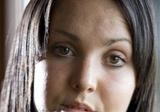Human rights champions
Work to combat violence against women and a grassroots soccer program championing racial harmony for refugee youth have won UNSW researchers two major human rights awards.
Work to combat violence against women and a grassroots soccer program championing racial harmony for refugee youth have won UNSW researchers two major human rights awards.

Work to combat violence against women and a grassroots soccer program championing racial harmony for refugee youth have won UNSW researchers two major human rights awards.
PhD candidate Nina Funnell, from the Journalism and Media Research Centre, and Football United, led by Anne Bunde-Birouste from the School of Public Health and Community Medicine, were named as winners of Australian Human Rights Commission (AHRC) awards.
The awards recognise extraordinary contributions to Australian society from men and women committed to issues of human rights, social justice and equality.
Ms Funnell won the AHRC Individual (Community) Award for her work on the board of the NSW Rape Crisis Centre and The Premiers Council on Preventing Violence Against Women.
"One in five women will experience sexual assault in Australia and almost one in three will experience physical violence," Funnell said.
"This makes violence against women the single greatest human rights violation currently occurring in this country - unfortunately, it's often overlooked."
Funnell is currently completing a PhD on consent issues regarding the production and distribution of sexualised images with the Faculty of Arts and Social Science's Journalism and Media Research Centre.
Documentary film, Football United: Passport to Hope, won the AHRC Award for Television. The film, produced by NorthOne Television, showcases UNSW's grassroots soccer development program run by Ms Bunde-Birouste, in UNSW Medicine's School of Public Health and Community Medicine.
The Football United program uses soccer to build opportunities for belonging, racial harmony and social inclusion among the 7,000 refugee children who arrive in Australia every year.
The film follows a 14-player Football United squad on its travels to South Africa to take part in the FIFA World Cup-affiliated Football for Hope Festival. It won for "encouraging audiences to look past the sensational news headlines and the political rhetoric to see that refugees and asylum seekers are far more than just statistics."
Ms Bunde-Birouste said: "The visual and auditory experience of television is an extremely powerful way to impart a story, to challenge people's preconceptions and to educate and inform.
"The award is a fantastic recognition of the program, and honours all of the participants, volunteers, staff and sponsors for their engagement and support."
Contact: Fran Strachan, UNSW Media | 02 9385 8732